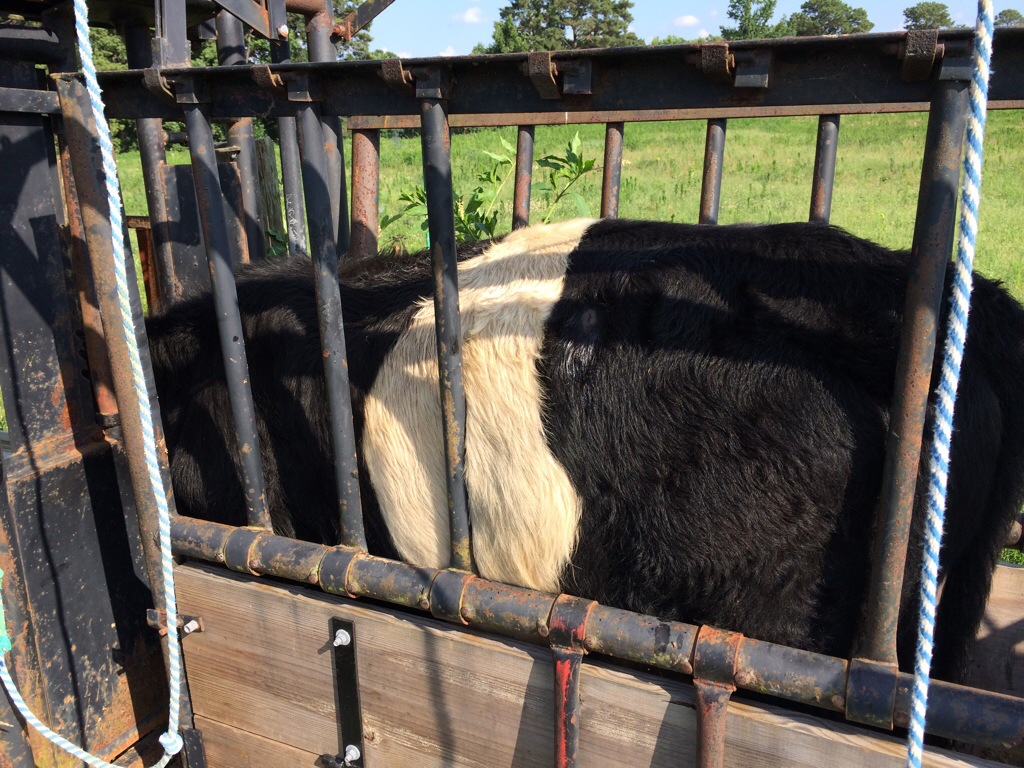
I’ve written already about treating #40 for bloat. Yesterday we had to continue our treatment and expand what we were doing. Before we could do anything though, we had to get him in the head gate. Unfortunately, by this point he’s pretty aware of what happens when he gets in the head gate and we spent quite a bit of time chasing him around the barn yard. Usually a cow will go where you point him, or at least away from you however this particular cow has ninja blood in him and he decided that the best thing to do was to run straight through Miguel and I. After I landed on my posterior the second time I decided to go get the one cow implement I’d never used, the cattle prod. The batteries were old because it had been sitting in the corner for years, never opened, but it seemed to work well enough to get our little ninja back in the mood to do what we said. I don’t like shocking cows, but I don’t like cows that don’t behave either. So dripping with sweat we locked him in the head gate and went to work.
We tried to be minimally invasive on our previous treatments with our steer since we had had such good luck with the other cows. We only bled off the offending gas and did a small treatment of DSS. Then we monitored the steer for how he was doing and repeated the treatment if things were not progressing well.
Finally yesterday we decided that minimal care wasn’t enough and we had to install a trocar. The trocar holds the rumen and skin open and allows the gas to vent outside allowing the rumen a chance to settle down and pretty much guaranteeing no more bloat.
Our steer is still not feeling chipper but now we have ready access to his rumen to apply more DSS or whatever else we need to try. Hopefully tomorrow will see him feeling better and things beginning to progress towards him getting back in the pasture.
Lastly, a shout out to Summit Equine in Apex, our vet, who helped us through all these bloat cases and helped us with the gear to be able to treat the easy cases ourselves on farm. Being able to treat on-farm is better for us and better for the cow.